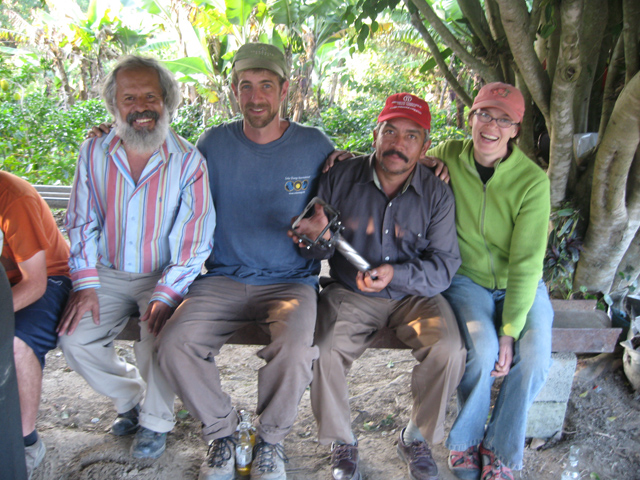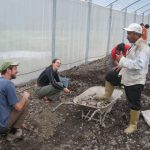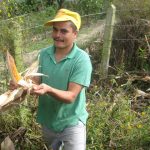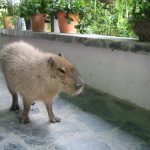Venezuela and the U.S.:
Sustainable Agro-Ecosystems and Cooperative Movements
ENVS311 / SOC313
During the 2008-2009 Academic Year, Professors Jenn Halpin (The College Farm, Environmental Studies) and Susan Rose (Sociology) offered an ethnographic field course addressing sustainable agricultural systems and cooperative movements.
Students took a ½ credit course in the fall with Halpin and Rose, studying the concept of sustainability from both agricultural and economic / political / development perspectives. They examined sustainable agricultural practices in both the U.S. and Venezuela, the Bolivarian process, and the cooperative and mission movements in contemporary Venezuela.
As part of the ENVS311 / SOC313 course, they then traveled to Venezuela from January 1st-16th 2009 to work in the fields at La Alianza, a model organic food production cooperative, learning about sustainable agricultural practices, including vermiculture. Students also had the opportunity to conduct in-depth interviews about the cooperative’s practices and philosophy.
Meetings with local people and activists, and field trips to other cooperatives also took place in the state of Lara. The last few days were spent in the coastal towns of Choroni and Chuau, visiting community organized eco-tourism projects and cocao plantations. During the spring semester students processed, analyzed, archived, and presented their final research projects.
Background
The community of La Alianza in the state of Lara in Venezuela is a model organic food production cooperative. The agricultural enterprises use no petro-chemicals due to previous negative experiences with contamination. La Alianza promotes sustainable farming practices and offers educational seminars to rural people. The community also presents an example of alternative land ownership for economically disadvantaged people. Sustainable agriculture is also gaining interest in the U.S., as consumers demand to learn more about how food is raised. Dickinson ‘s College Farm offers students the opportunity to gain hands-on education in sustainable food production and serves as a resource for farmers and consumers to learn about sustainable food systems. This project will introduce students to the concepts of sustainable agriculture and agro-ecology at the College Farm. They will then be primed to examine the rural Venezuelan approach to the same concepts at La Alianza. By comparing two approaches to sustainability practiced in the U.S. and Venezuela , students will be pressed to delve deeper into the questions of land stewardship, viable economies and sustainable communities.
La Alianza, which sits above a small, impoverished rural community in the mountains of Lara – boasts a very successful, cooperative organic farm. In January (‘07), 25 Dickinson students and faculty spent time at La Alianza, interviewing members of the cooperative organic farm that is now recognized around the country and in a number of Latin American countries. La Alianza formed in 1976, and over the past 30 years has been able to sustain an agricultural cooperative.
La Alianza operates three different parcels of land worked by 42 co-op members. Producing everything from vegetables to rabbits, from coffee to liquid fertilizers, La Alianza was begun thirty years ago by landless peasants and has been a self-supporting and expanding business ever since. Most of its products are now organically grown, although a few crops, like coffee, still require mild chemical pesticides.
Dickinson College Mosaic Program




